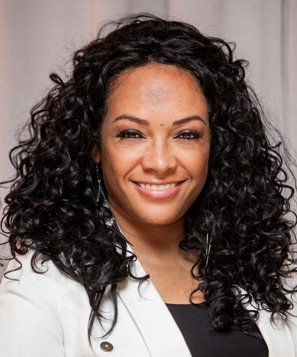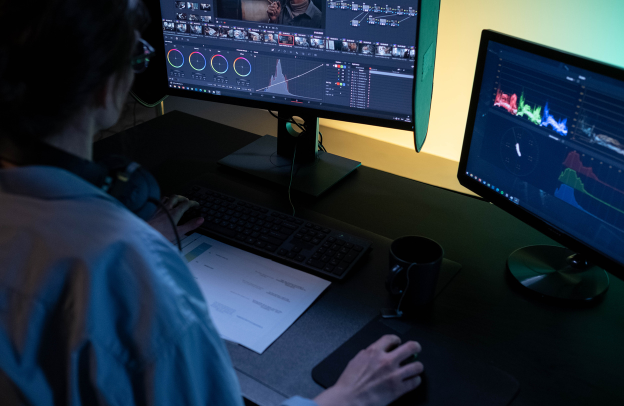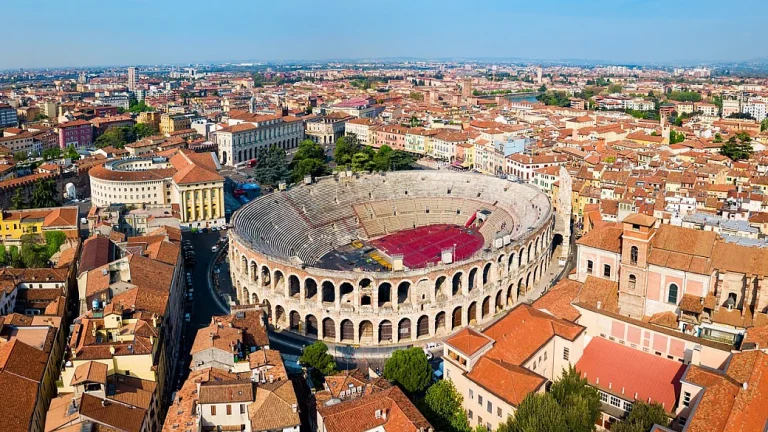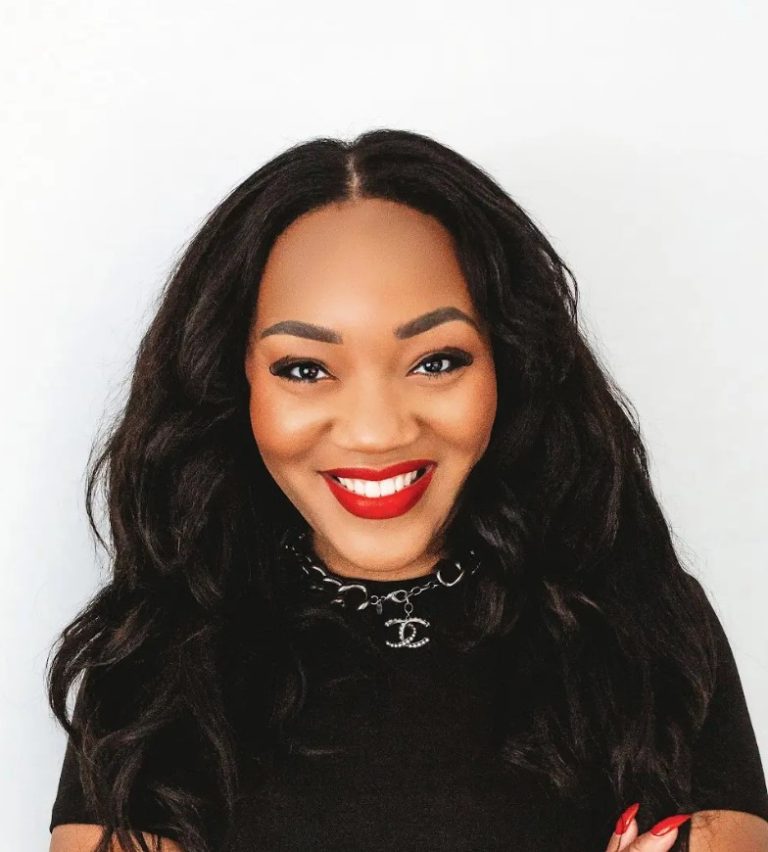The Architect of a Legacy: How Kanya King Built the MOBOs from a Conviction, Not a Consensus

What is legacy? For some, it’s a 100-year-old family business, a name chiseled in granite above a building. For others, it’s a body of work, a philosophy, or a set of principles passed down to the next generation. But for the most impactful leaders, the true architects of change, a legacy is an institution built from a conviction, so powerful it changes the culture itself.
Learn How to Leverage Your Story through our Story To Asset Framework.
In the mid-1990s, the British music scene was dominated by one sound: Britpop. The airwaves were saturated with it. Meanwhile, the rich, innovative sounds of R&B, hip-hop, grime, and soul, music “influenced and inspired by black music”, were treated as a niche, underground concern. They were producing culture but were denied a mainstream platform.
A young woman from Kilburn, North London, saw this “glaring gap.” She didn’t just see a market opportunity; she saw a cultural injustice. She saw a generation of artists being ignored.
Her name is Kanya King. And the institution she built, the MOBO Awards, provides a definitive blueprint for every Diaspora leader and multi-generational business on how to transform a personal “why” into an immortal legacy asset.
The “Why”: Forging a Legacy from Lived Experience
Kanya King’s story is not that of an industry insider. She is the living embodiment of the audience she would one day champion.
Born in London to a Ghanaian father and an Irish mother, King was the youngest of nine children. Growing up in a crowded council flat in “notably less enlightened times,” her worldview was forged by the experience of navigating a world that often didn’t see or hear people like her. Her father passed away when she was 13. By 16, she was a single mother, forcing her to drop out of school.
For many, this would be the end of the story. But for a legacy-builder, this is the origin story. This is the data.
Your lived experience, your unique cultural blend, your struggles, your “why”, is not a liability. It is the proprietary knowledge base you alone possess. Kanya King’s “why” was not academic. She was the culture. She understood the frustration, the talent, and the burning need for recognition because it was her own.
This is a crucial lesson for the Established Diaspora Leader. The 20+ years of experience you have, the challenges you overcame, the “no”s you turned into “yes”s that is the raw material of your legacy. It is the core of the message only you can deliver.
The Moment of Creation: When Conviction Meets Capital
After studying English Literature at Goldsmiths College and working as a TV researcher, Kanya King decided to act on her conviction. She would create a mainstream, televised awards show to celebrate Black music.
The industry’s response was predictable: No.
She couldn’t find a single financial backer. The consensus was that there was no audience for it. The establishment was blind to the gap she saw so clearly.
See also Why Your Story is Your Most Valuable Asset: The 140-Year Legacy of The Philadelphia Tribune
This is the moment of truth for every entrepreneur. Do you accept the consensus, or do you bet on your conviction?
Kanya King made a choice that separates dreamers from legacy-builders. She re-mortgaged her own house to fund the television production herself.
Let’s pause on that. She risked her family’s home, the one asset that represented stability, for an idea. This was the ultimate investment in her own vision. With that capital, she worked with a ferocious, singular focus. In just six weeks, she organized the very first MOBO Awards, securing a broadcast deal with Carlton TV.
In 1996, the first MOBO Awards took place at London’s Connaught Rooms. Against all odds, it was a success. Kanya King had not just launched an event; she had created a tangible asset. She had proven the consensus wrong.
This is the essence of what we at AClasses Academy help leaders do. You have an idea, a life’s work. But how do you turn it into an asset?
- For Kanya King, the asset was an awards show. For you, it might be a Legacy Signature Program, a proprietary methodology that packages your unique solution to a problem no one else can solve.
- Her story of risk and conviction is powerful enough to be a Legacy Book. Your story is, too. It’s the asset that builds undeniable authority and leaves a guide for the next generation.
- Her journey, the council flat, the bank’s rejection, the re-mortgage, the red carpet, is a Legacy Film in the making. She shaped her own narrative by doing, and now that story is an immortal part of British music history.
Building the Institution: From an Event to a 25-Year Legacy
The first MOBOs proved it was possible. Everything Kanya King did next proved it was built to last. A true legacy is not a one-off event; it’s an institution.
The MOBOs became the premier platform for launching generations of British talent. It provided a crucial early stage for artists who would go on to become global superstars, including:
- Stormzy
- Skepta
- Dizzee Rascal
- Ms. Dynamite
- Craig David
- Rita Ora
- Emeli Sandé
- Amy Winehouse
The brand became so powerful that it attracted the world’s biggest stars to its stage: Jay-Z, Beyoncé, Diana Ross, Tina Turner, Janet Jackson, Usher, and P. Diddy all attended, lending their star power and, in turn, validating the platform King had built.
But Kanya King knew a legacy was “much more than just an awards ceremony.” She began to codify her mission. She built an ecosystem around the awards to ensure its longevity and impact:
- MOBO UnSung: An artist development program to find and nurture the next generation of talent.
- MOBO Trust: A charitable arm to create opportunities and support young people.
- MOBOvation Talks: A platform for motivating and celebrating excellence beyond music.
This is what legacy-building looks like in its mature phase. Kanya King was no longer just running an event; she was running a “social and cultural” organization with a “responsibility to motivate, elevate and celebrate.”
This is the exact pivot we see our clients, Founders, CEOs, and multi-generational family businesses navigating. You’ve built the successful business. Now, how do you package its history, its “why,” and its methodology into an asset that builds trust, justifies your premium, and inspires the next generation?
The MOBOs’ 25+ year history is its most powerful marketing tool. The story of its founding is what gives the brand its soul, its authority, and its right to lead.
Your Legacy is Your Most Valuable Asset
Kanya King’s work earned her an MBE in 1999 and a CBE in 2018. She has received honorary doctorates and is consistently named one of the most influential Black people in Britain.
But her true legacy is not the list of accolades. Her legacy is the thriving, multi-billion-dollar British urban music scene she helped build. Her legacy is the generation of artists who saw a path to success because she built the road. Her legacy is a testament to the idea that one person’s conviction, backed by courageous action, can change the culture.
See also How To Tell Your Personal Story: The Essential Guide To Memorable Storytelling
She turned her lived experience into a global platform. She built an institution from scratch. She immortalized her “why.”
You have a “why.” You have decades of expertise, a unique story, and a conviction that has driven your success. The only question is how you will package it for the next generation.
Your legacy is your most valuable asset. Before you draft another business plan, let’s talk about how to immortalize it. Let’s design the asset that will tell your story for the next 100 years.
Book your free 15-minute Legacy Strategy Call today.





